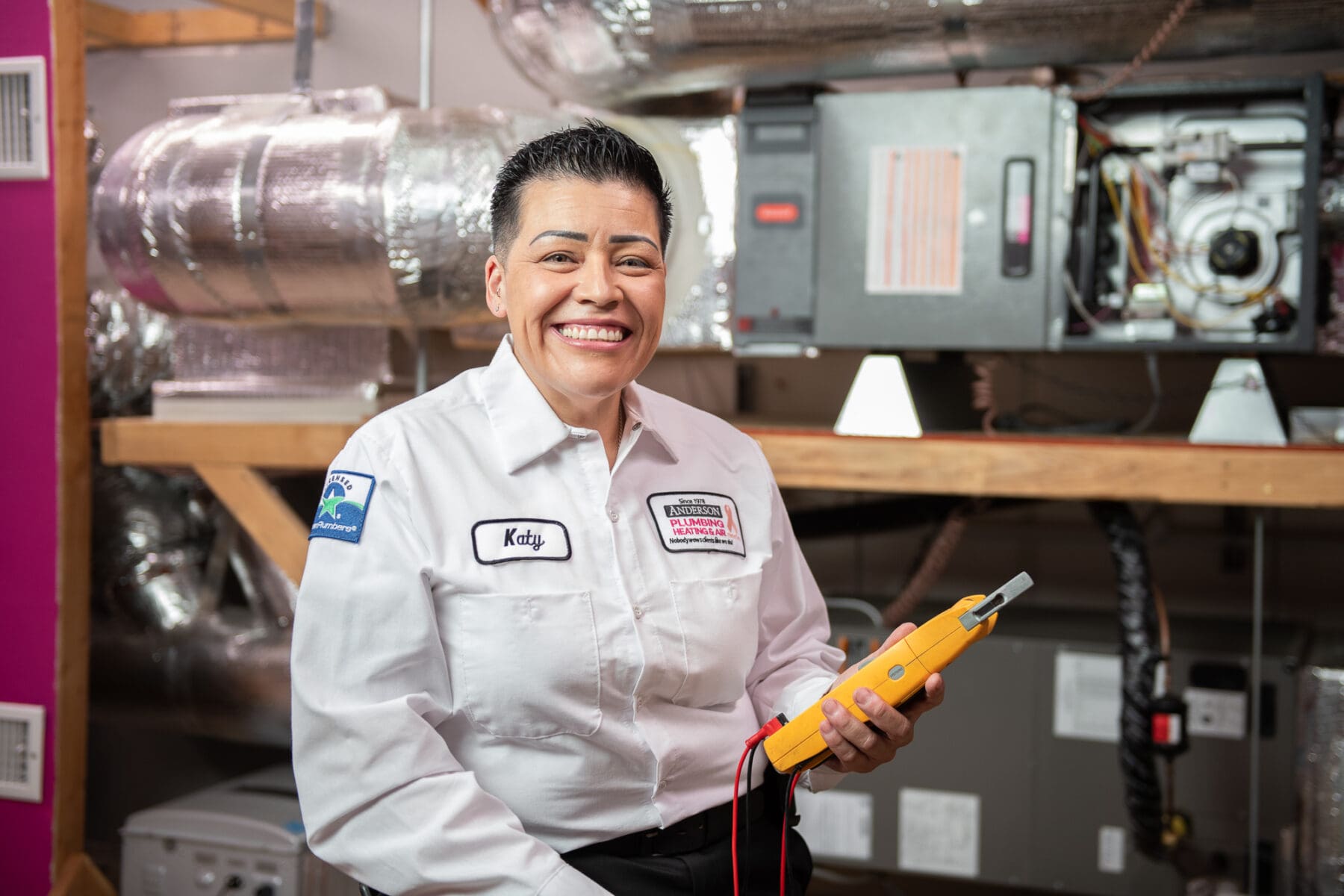
Repipe Pipelining
Pipelining & Repiping in San Diego
Pipelining and repiping services are typically required if your sewer line or main water line have problems or even fail. In both of these instances, you can lose access to your plumbing system, creating a large inconvenience for you and your family.
If you aren’t sure whether your home needs pipelining or a complete repiping, Anderson’s plumbers can assess your situation and provide the best solutions. Typically, there are signs you can look for to determine if there’s an issue with your sewer or water line. These may include:
- Leaks
- Corrosion and Rust
- Nasty Odors
- Pinhole and Slab Leaks
- Low Water Pressure
- Water Meter Moving When Water Is Off
- Mold or Water Stains
- Smelly or Colored Tap Water
- Warm Spots on Your Floor
- Pipe Bursting
How to Tell if You Have Polybutylene Pipes
To determine if your home is a “poly house,” start with the exterior. Underground water mains are usually blue in color (they can also be black or gray). The pipe is usually ½ to 1-inch in diameter. Frequently, it enters the home near the water heater. Your main shut off is attached to the end of the water main.
Make sure you check both ends of the pipe. We have found cases where the copper pipe enters the home and polybutylene is at the meter.
Polybutylene used inside your home can be found near the water heater or coming out of the walls to feed sinks or toilets. Warning: some plumbers installed “stub outs” of copper when exiting the wall. Just because copper is showing does not mean you do not have polybutylene pipes. You may have to make a small hole in the drywall to see the connection.
Why Polybutylene Pipes Fail & What to Do Next
Oxidants such as chlorine in the public water supply react with the polybutylene piping and acetal fittings, causing them to scale, flake, and become brittle. This results in micro-fractures and reduces the basic structural integrity of the system. The system becomes weak and may fail without warning, causing damage to the building structure and personal property. Improper installation is also a common cause of polybutylene system failure, which can be nearly impossible to detect.
Throughout the 1980’s lawsuits were filed hundreds of millions of dollars in damages. Manufacturers never admitted that poly is defective, but they did fund a class action settlement for $950 million.
If your polybutylene pipes have failed, read your insurance policy thoroughly. Make sure you know what is covered and what is not covered. Many insurance companies will not cover a slow leak. Claims may be denied because the standard HO-3 homeowners’ policy specifically excludes “a loss as the result of a water leak over an extended period of time.”
Call your insurance agent and confirm your coverage. Once you have read through your policy and confirmed what is covered and what is not covered, double check with your agent to confirm that your understanding is correct.
Call Us for a Repiping or Pipelining Consultation
A re-pipe or pipelining consultation will take about an hour. This is not a high-pressure sales meeting; the purpose is to provide you with accurate information. If you determine it is not in the budget at the time, at least you will know what your plumbing issues are and what it will take to regain security and peace of mind.
An affordable temporary option may be leak detection products that automatically shut off the water if a leak occurs.
Need Repiping or Pipelining Services in San Diego?
Call us at (760) 374-3274 to find out how we can help today!
Schedule Your Service Today
No matter what your issue, we’ve got the solution for you. Schedule service with our trusted experts today.
Need Emergency Service?
Don’t wait to get help during an emergency. Connect with a live operator now for immediate support.



